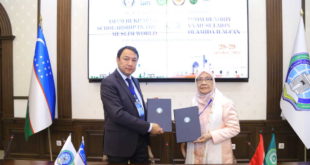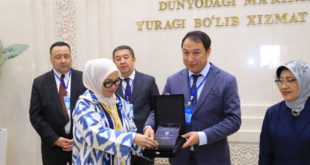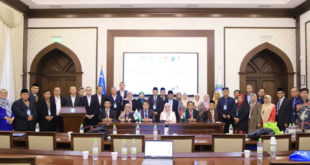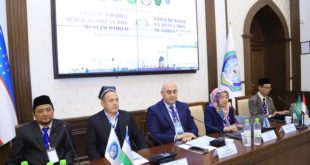On September 11, at the initiative of the Yasawi Studies Center under the “Azret Sultan” (Hazrati Sultan) National Historical and Cultural Museum-Reserve of Turkistan Region, Republic of Kazakhstan, an online discussion was organized on the theme “Representatives of the Yasawiyya Order in Samarkand.”
The event featured a lecture by Dr. Shovosil Ziyodov, Doctor of Historical Sciences, Professor, and Director of the Imam Bukhari International Scientific Research Center.
The scholar highlighted the significance of the gathering with the following remarks:
“The history of the Yasawiyya Order cannot be imagined apart from Samarkand. For this sacred city has held a great place not only as a center of science, but also as a hub of spirituality.”
Building on this, the speaker gave particular attention to the lives and legacies of prominent Sufi figures who lived in Samarkand, especially Shaykh Khudoydod Vali, his intellectual and spiritual heritage, and his role within the Yasawiyya Order.
As noted, Shaykh Khudoydod Vali revived the Yasawiyya tradition in Samarkand with renewed vigor in the early 16th century, turning the Ghazira area into one of the key centers of the order.
According to historical sources, he was honored and recognized in his time with titles such as “Sultan of the Tariqa,” “The Greatest of the Gnostics,” and “Pole of the Poles.” Through the Shaykh and his disciples, the teachings of the Yasawiyya spread from Samarkand to Turkistan, Bukhara, Herat, and even further to India.
As highlighted in the lecture, Shaykh Khudoydod Vali was known not only for strengthening the Sufi school but also for serving as a great figure who inspired spiritual awakening within society. The khanaqahs, mosques, and shrines built by his disciples continue to serve as centers of spirituality today, becoming revered destinations for both the local community and visiting pilgrims from abroad.
Professor Ziyodov concluded his lecture with the following words:
“The legacy of the Yasawiyya Order in Samarkand is an integral link in our spiritual roots. To study it, to preserve it, and to convey it to the next generation is our shared responsibility.”
The scholarly discussion once again shed light on the Yasawiyya teachings and their role in Samarkand. The reflections presented carry not only significant academic value but also serve to inspire today’s generation to more deeply understand and appreciate our spiritual heritage.
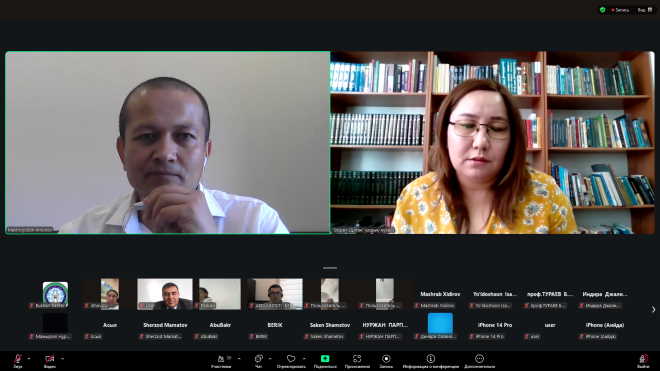
Shaykh Khudoydod Vali and the work of his disciples who continued his path remain alive not only in the pages of history, but also in the memory of the people. The spiritual traditions they established, the sacred sites they built, and the cultural heritage they left behind continue to live on today—both materially and immaterially—in the consciousness of generations.
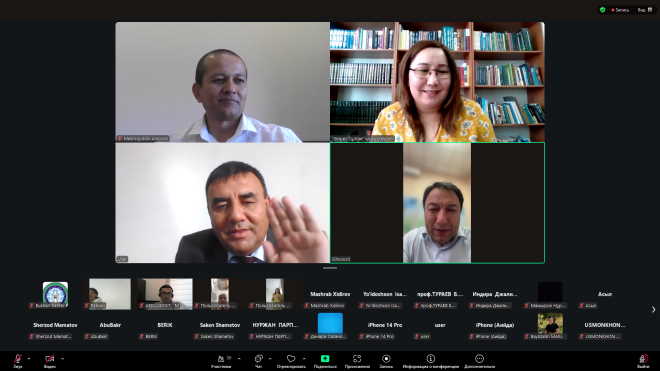
This event once again reminded us of the need not merely to revisit history, but to rediscover national identity, spiritual maturity, and the bonds of enlightenment.
Imam Bukhari International Scientific Research Center
Press Service
 Imom Buxoriy xalqaro ilmiy-tadqiqot markazi bukhari.uz
Imom Buxoriy xalqaro ilmiy-tadqiqot markazi bukhari.uz








